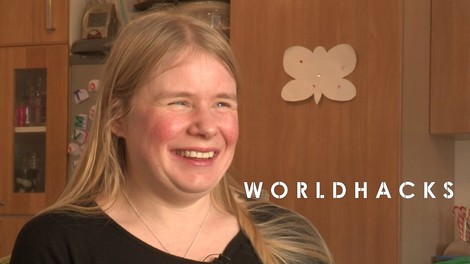Your podcast discovery platform
Curious minds select the most fascinating podcasts from around the world. Discover hand-piqd audio recommendations on your favorite topics.

piqer for: Global finds Technology and society
Prague-based media development worker from Poland with a journalistic background. Previously worked on digital issues in Brussels. Piqs about digital issues, digital rights, data protection, new trends in journalism and anything else that grabs my attention.
Lend Your Eyes: The App That Lets Blind People See
Worldwide, 285 million people are estimated to be visually impaired, with 39 million being blind and 246 million having low vision, according to the World Health Organization (WHO). Vicky, a mother of three from Edinburgh in Scotland, is one of them.
In a short video reportage featured on BBC World Hacks, she's faced with the problem of finding a green thread to fix her son's pyjamas. A mundane action for many, for Vicky it is quite a challenge, as she has been blind since birth. However, she manages to complete the task thanks to Kai, a volunteer from the Hague in the Netherlands. Kai simply lends her his eyes through the Be My Eyes app.
Albeit sometimes a bit awkward in narration, and a bit old-fashioned in terms of visuals, the BBC World Hacks' video takes a look at relevant volunteering projects that help visually impaired people solve everyday problems. It offers a piece of positive news that can brighten your day when you're just not in the mood to hear about the negative impacts of technology.
"We are blown away by the number of people who are willing to help blind people," the inventor of the app Hans Wiberg told the BBC.
And the numbers are indeed positively surprising. Using smartphones' video technology, the app connects a troubled person to one of the volunteers around the world who want to help them out and "lend their eyes". According to the BBC, there are 14 volunteers for each of the visually impaired people on the app. Although concentrated in the West, the developers would now like to take the app to the low-income countries where 90% of the world's visually impaired people actually live.
